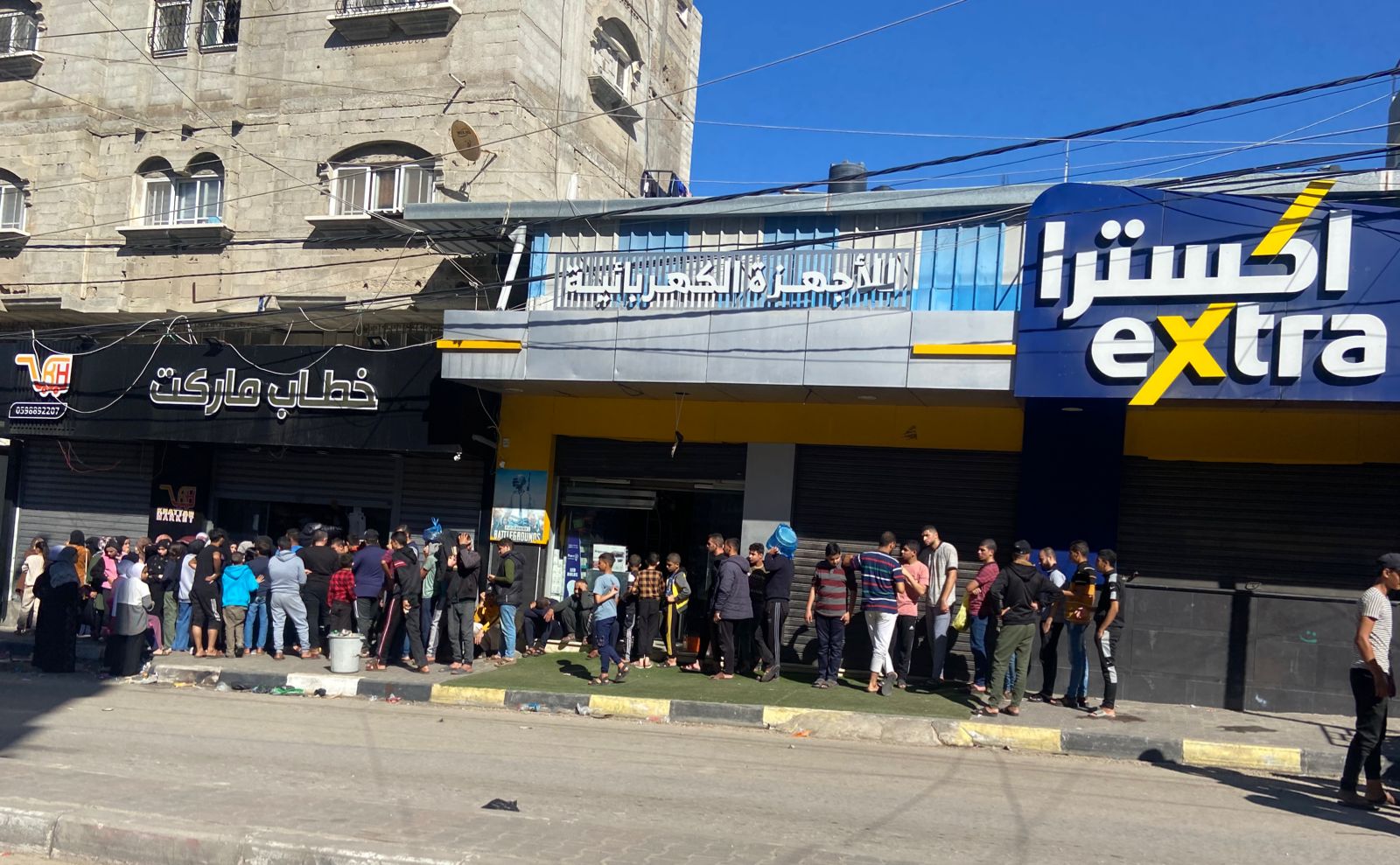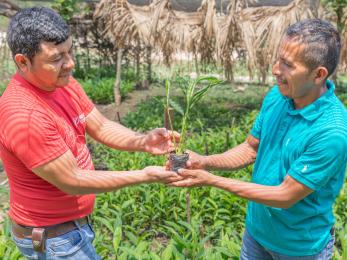Delivering access to food amidst a drought crisis
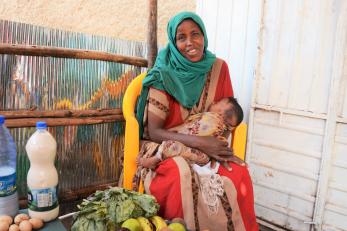
In 2023, extreme weather events around the world continue to be exacerbated by El Niño, when the surface temperature of the central and eastern Pacific Ocean becomes unusually high. Across Ethiopia, more than 760,000 people have been affected by floods, heavy rains, and landslides since October. While people in Ethiopia are currently facing hazardous conditions due to the floods, communities have also been experiencing crisis due to historic droughts in the region.
Although people in the Oromia Region in Ethiopia have contended with less than optimal rains in the past, the last two years have been the worst. For households who rely solely on their crops for their income, the drought has destroyed livelihoods and led to devastating food shortages. Failed rainy seasons since 2020 have left more than 23 million people acutely food insecure across the Horn of Africa—including 13 million people in Ethiopia.
The severe drought and food shortage have led to malnutrition for young children. In early 2023, we met Khadija and her husband who were facing this crisis with their children in Gumbi Bordode, a district in Oromia. “Two of my young children are now under series of follow-ups by health professionals as they were showing signs and symptoms of food shortages,” Khadija said. “The rains were not in sight for months. Most of the millet seed we sow was dead under the soil. I had nothing to feed my children.”
Khadija and her husband grow millet on their farm as their main source of food and income. But since the crops failed due to the drought, the family lost the crop as sustenance and as a way to earn income to buy food. It became so dire that Khadija was unable to breastfeed her two-month-old son since she was not eating enough for herself.
E-Vouchers provide access to fresh food
As part of Mercy Corps crisis response and program promoting food security, Khadija received electronic voucher cards to purchase fresh foods and vegetables from a local business. The e-voucher system is a quick and efficient process to deliver support to communities. “The old paper-based system required days to complete distribution of humanitarian support to communities, and errors were bound to happen in any of the steps,” said Rahma, a Mercy Corps team member in Ethiopia. “That is kept to a very minimum in the digital system.”
More than 60 households in Khadija’s village were able to purchase food, as well as feed and fodder for their animals, for three consecutive months. “I’m thankful for the meat, vegetables, and eggs I received today,” Khadija said. “These are very nutritious foods that I don’t get for my family, especially since the drought hit us badly. My youngest son will benefit most.”
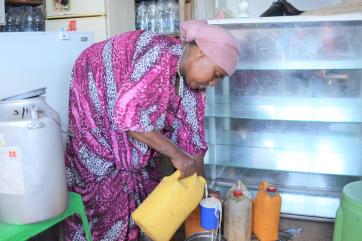
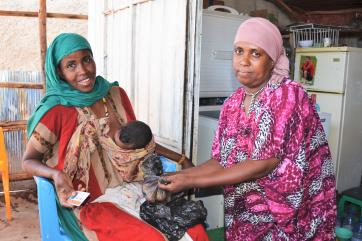
Supporting small businesses during crisis response
Small businesses faced challenges due to the drought as well, since their usual customers no longer had income to spend at their stores. In Gumbi Bordodem, Fatuma has been running a milk business for more than a decade and recently saw a steep decline in customers due to the drought. As part of the Mercy Corps crisis response, Fatuma and other vendors were included in the e-voucher system to provide milk and eggs to participants. Each program participant in the crisis response received three liters of milk and 10 eggs as part of the fresh foods and vegetables voucher-based distribution from Fatuma’s shop.
“I was able to add 65 new customers just in today’s distribution of fresh foods,” Fatuma said. “They are new customers, and I made over 30,000 Birr in one day.” Before participating in the crisis response, Fatuma’s sales had been one-third of what she was earning from e-voucher sales.
In addition to the crisis response, Fatuma had also participated in a Mercy Corps program offering trainings and financial aid to help small businesses grow in the Oromia Region. Following the training, Fatuma has been continuously working on improving the quality of milk supply available by collaborating with regional pastoralists on milk collection and transportation. Fatuma has also been able to buy a refrigerator and equipment to keep the milk fresh for her customers.
Along with providing households access to food, feed and fodder vendors ensured their stores were stocked so community members could feed their livestock. Feed and fodder vendors distributed supplies to 100 households during the crisis response.
In 2023, more than 189,000 drought-affected households like Khadija’s family have received support through Mercy Corps’ crisis response across Afar, Somali, and Oromia Regions. By using technology and working with local markets, Mercy Corps helped to improve short-term food security while sustaining an increase in food production to better withstand challenges that may arise in the future.

